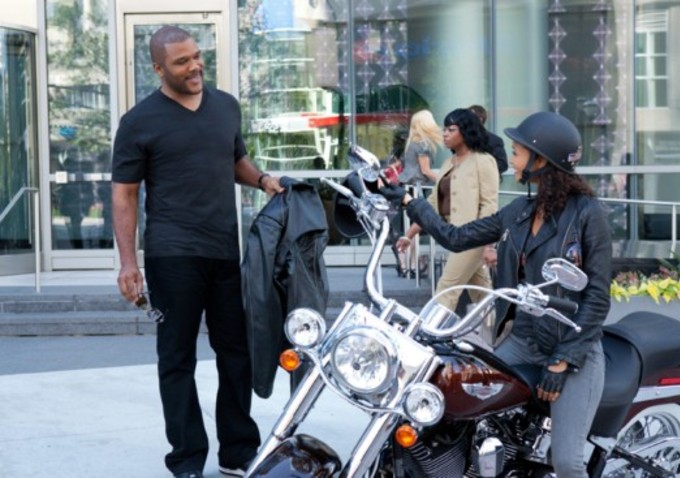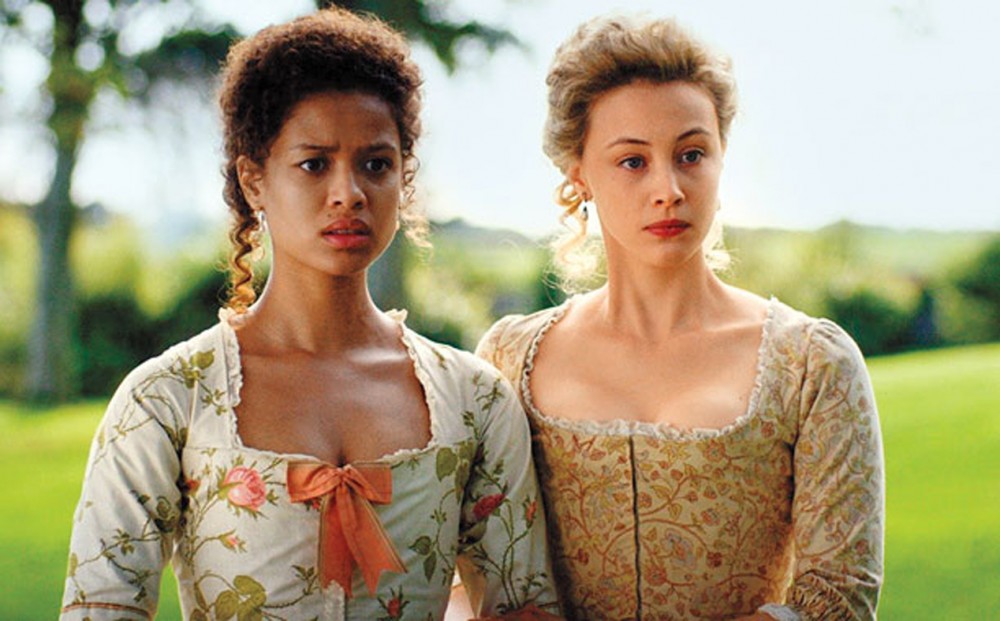More recently, in spite of Spike Lee’s tantrums at Sundance about the lack of Hollywood funding for his films and hence black films for that matter, Tyler Perry’s movie industry continues to stand firm, separate and completely weaned from the apron strings of an integrated Hollywood. His business acumen in the industry remains unquestionable and perhaps the only reason why he’s put under so much pressure by critics about his ability as a filmmaker.
The latest installment of such attacks has conveniently resurged in the wake of his new film, Good Deeds in which a businessman Wesley Deeds is jolted out of his scripted life when he meets Lindsey, a single mother who works on the cleaning crew in his office building.
It wasn’t surprising then when writer, producer, director and actor/ess Tyler Perry himself, touted Good Deeds, for good measure, as his strongest directorial chapter yet. Even though I fail to understand the import of the exercise – the back and forth between him and his harshest critics.
And again, like the good businessman in Wesley Deeds, Tyler Perry, has been equally jolted out of his solo-filmmaking-auteur stupor with the putrid and still dropping 2.7 rating on IMDB. The number of critics lambasting every scene in his new film, Good Deeds, is just growing in vigor.
But, why?
Good Deeds is an okay black film. Period! And that is possibly why it begs such a low rating on IMDB anyway. But that’s okay! It sings a tune that many economically struggling black folk can easily dance to. It inspires in us, however distant, dreams and hopes that somewhere someday, some good Samaritan will find the good in us and spare us the hustle and the suffering.
The miserable sight of a frustrated single mother, Lindsey Wakefield (Thandie Newton), whose husband had passed away in perhaps an unnecessary war; the warmth of a lovely daughter, Ariel (Jordenn Thompson), smart in every respect, but growing up in a precarious situation she did not choose; they encounter the helping hand of Wesley Deeds (Tyler Perry), who is also fighting tooth and nail to unzip a stiff family-sewn corporate-America-cocoon he can barely breathe in.
Together these three individuals navigate a set of simple life experiences that hitherto have not been explored enough in film. Wesley and Lindsey, complete each other in immeasurable ways, albeit a romantic one. He gives back the janitor mum and her daughter their humanity – a place to sleep and food to eat! In the process he gains a deeper understanding of himself and finds the courage to break free from his scripted family business position he has since childhood been nurtured for.
The story in Good Deeds is the simple story of the good Samaritan. That you always stand to gain from helping out! A successful black man/woman is blessed in helping out the destitute. It is a kind of black community such ideals encourage, especially at a time that single motherhood has skyrocketed, partly as a result of America’s parochial war on drugs and the mass incarceration of black men.
Even further, Tyler Perry introduces an issue that many of us African Americans may shy away from. That our struggles to fully become aware of who we are, are incomplete without at least, a mental reconciliation with our historical past – Africa! Lindsey, so reflected in her gold African earrings, is a woman completely in tune with that awareness. She is a woman profusely entrenched within her culture as she draws on Tupac’s music, for example, for inspiration.
That is why in the final scenes, when her relationship with Wesley had grown stronger, her influence on his life is so remarkably expressed in him packing up for a pilgrimage too. First, to Tupac in inspiration and second, to the motherland – in order to fully break free from the confines of his economic and historical present.
Hence Good Deeds is a word to a wise – a reminder to the many successful black folk out there about where their responsibilities should lie – in good deeds. If we need to talk about a community, there must be a social responsibility towards it. There are many Lindseys out there, who can teach the Wesley Deeds a thing or two about themselves. And there are many Wesleys out there who can help out some struggling Lindseys.
In this light, I don’t think Tyler Perry needs to demonstrate his worth as a filmmaker to anyone – not to critics; not to cinephiles and certainly not to academics. He has less to prove than many filmmakers around. His Madea works, and it works quite a charm. Even if not every black person seems sold out on his magic, it’s okay! Not everyone believes a charm – the whole point of it.
But I gather he wants to become a force to reckon with, an artistic director to boot. Yet, the only problem I find with Good Deeds – and one that he’s continually failing to comprehend – is that he cannot become all these things all by himself – writing, directing, producing and acting in the same movie, and whatever combinations thereof. He failed at being a romantic interest in Good Deeds – in fact he failed terribly.
However, I feel I am one of those critics out there who grossly underestimated Good Deeds. Likewise, I sincerely think many critics jumped the gun even before they had seen the movie. Maybe this is why it has become increasingly difficult to applaud Mr. Tyler Perry in the places where Good Deeds got it right!
I may agree that Good Deeds is not a formidable piece of art, but it is not a bad movie by any standard. And it is not to say that the independent feel to a film that cost many millions to make was a laudable effort. But I think Tyler Perry has taken some bold steps in internalizing what many black filmmakers have failed to comprehend – making the authentic black film – a black film that resonates with black people and that is why he has been successful.
Because, the fact remains that, many of us are able to all the time, put our 40 million different lived black experiences aside and appreciate the harnessing rhetoric underlying Good Deeds. Come to think of why an accomplished filmmaker in Spike Lee still begs bread from Hollywood? It should not be difficult then to applaud the astute director in Tyler Perry.
Director: Tyler Perry
Writer: Tyler Perry (screenplay)
Stars: Tyler Perry, Gabrielle Union and Thandie Newton











GoodDeeds is a movie we’ve seen a million times – just done by others (I can name them) – but @TylerPerry brought it home 🙂
I love where you say “He gives back the janitor mum and her daughter their humanity…” Plus you present some great arguments. I thought Perry pulled off the love interest in Good Deeds much better than he did in the Why Did I Get Married series. Looks like he too his time in this movie even though still wearing all the hats. Like you, I think his best project will come when he allows someone else to where one of those hates. Of course my preference would be for him to put a female in that dress. However, I remain in the great minority on that issue.
Loved GoodDeeds. Paid and saw it twice.
de hating def. need to slow down.. Good Deedz was awezome, nize and zimple!
I loved your review. I saw Good Deeds the week it opened. Loved it. It wasn’t great, but I wasn’t looking for great. I just wanted to be entertained. And, I was. Tyler’s movies never fail to entertain.
I always see his movies. I am a big fan. Yep, I know Madea is a crazy, out-of-the-box character, but she makes me laugh. Worth the price of admission. I don’t go to Tyler’s movies expecting CITIZEN KANE. Spike Lee is a talented guy but your comments about him are accurate, “Come to think of why an accomplished filmmaker in Spike Lee still begs bread from Hollywood? It should not be difficult then to applaud the astute director in Tyler Perry.” He complains about Tyler instead of applauding Tyler for having his own studio and being in control of his own projects. And, speaking of Citizen Kane, frankly, Spike is no Orson Welles, either. His comments seem to speak of professional jealousy. If he were so smart, he would emulate Tyler or get to know him, do projects WITH him instead of constant berating his success.
Thanks again for a great review. Great points.
LOL @ “Spike is no Orson Welles, either” True he should work with Tyler Perry. Instead of bickering they could collaborate to make something great!